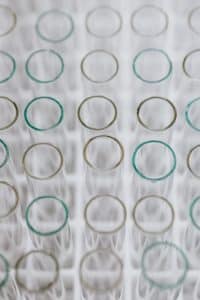Understanding thyroid function involves delving into the intricate network of deiodinase enzymes that play a crucial role in regulating cellular thyroid activity. These enzymes determine the activation and deactivation of thyroid hormones within cells, thereby governing thyroid levels at a local level. This is a pivotal aspect of thyroid health, impacting various tissues and physiological conditions.
Local Control and Deiodinase Enzymes
The activity of deiodinase enzymes guides the conversion of inactive thyroxine (T4) to active triiodothyronine (T3) and vice versa. There are three main types of deiodinase enzymes: type I deiodinase (D1), type II deiodinase (D2), and type III deiodinase (D3). D1 and D2 increase cellular thyroid activity by converting T4 to T3, while D3 reduces cellular thyroid activity by converting T4 to reverse T3. These enzymes are present in different tissues across the body, making them crucial control points for thyroid function.
The Influence of Physiological Conditions
The activity of these deiodinase enzymes is not constant; it responds to various physiological conditions. For instance, D1 is suppressed under conditions of stress, depression, dieting, weight gain, inflammation, and exposure to toxins. This can lead to reduced levels of active thyroid hormones in the body, causing symptoms like fatigue, depression, and fibromyalgia.
D2's Role in Pituitary Regulation
D2 is significant in regulating pituitary thyroid hormone conversion and thus plays a role in thyroid stimulating hormone (TSH) production. However, relying solely on TSH levels as an indicator of overall thyroid status is not accurate. The pituitary has a unique composition of deiodinases that responds differently from other tissues in the body. This means that even if pituitary T3 levels appear normal, other tissues in the body might be experiencing thyroid deficiency.
Unique Aspects of D2 in the Pituitary
The pituitary has distinct membrane thyroid transporters and thyroid receptors. Unlike other tissues, the pituitary contains little D1 and no D3. D2, present in the pituitary, efficiently converts T4 to T3, contributing to higher T3 levels in the pituitary compared to other tissues. This unique composition results in a disparity between T3 levels in the pituitary and the rest of the body.
D3 and Reverse T3
Unlike other tissues, the pituitary lacks D3, which converts T4 to reverse T3. Reverse T3 is a competitive inhibitor of T3, hindering its effects. High levels of reverse T3 can lead to cellular hypothyroidism, even if standard thyroid blood tests appear normal.
The Need for Comprehensive Evaluation
Recognizing the limitations of standard thyroid tests is crucial. Conditions like stress, chronic illness, obesity, and inflammation can disrupt the correlation between TSH levels and tissue thyroid levels. Consequently, relying solely on TSH as an indicator of thyroid health is insufficient. A broader clinical evaluation, including consideration of symptoms and alternative markers like the free T3/reverse T3 ratio and basal metabolic rate, is essential for accurate assessment.
Seeking Comprehensive Thyroid Evaluation
To navigate the complex landscape of thyroid function, it's imperative to consult a thyroid specialist who understands the intricacies of deiodinase enzymes and their impact. A comprehensive evaluation that goes beyond standard tests is essential for detecting and addressing thyroid dysfunction effectively. This approach ensures that thyroid health is assessed holistically and that patients receive the appropriate treatment for optimal well-being.
Holtorf Medical Group's Specialized Thyroid Expertise
Holtorf Medical Group, under the guidance of Dr. Kent Holtorf, stands as a beacon of comprehensive thyroid care. We recognize the limitations of traditional thyroid assessments and offer a cutting-edge approach that considers the intricate interplay of deiodinase enzymes and their impact on your well-being. Our specialized thyroid experts understand the unique complexities of thyroid function, ensuring that you receive an accurate evaluation that encompasses all facets of your health.
At Holtorf Medical Group, we are committed to providing you with clarity about your thyroid health. Through our in-depth thyroid testing protocols, we uncover the nuances that standard tests may overlook. By comprehensively assessing your thyroid function, including deiodinase activity and related markers, we paint a detailed picture of your thyroid status.
Contact us to book your appointment today. Call: (310) 375-2795


